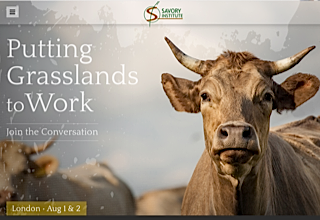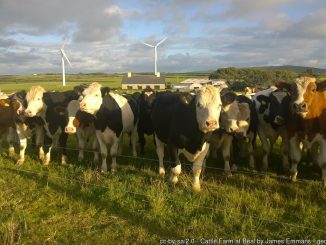 More than 20,000 climate change activists marched through central London on March 7, demanding a resolution of the international political logjam that is preventing world leaders from taking positive action on global warming. Thousands of UK demonstrators streamed down Whitehall waving flags, banners and placards, passing the security-fenced entrance to Downing Street.
More than 20,000 climate change activists marched through central London on March 7, demanding a resolution of the international political logjam that is preventing world leaders from taking positive action on global warming. Thousands of UK demonstrators streamed down Whitehall waving flags, banners and placards, passing the security-fenced entrance to Downing Street.
A phalanx of cyclists followed an elaborate winged bicycle bearing the message “Love your Mum” and cartoon images of an overheating globe with a thermometer in its mouth. On an unseasonally warm and sunny spring afternoon, the crowds brought an urgent message to Parliament Square that very few of UK politicians want to hear: climate change is already upon us. Speaking at the end of the march, Green MP Caroline Lucas made the point very forcefully: “The politicians in there are afraid,” she told the throng. “They are afraid because they don’t know what to do.”
More to the point, industrial agriculture is a source of greenhouse gases (GHGs) at a time when farming should be part of the solution. The idea is not a new one and has been studiously ignored by politicians the world over for years. In its 2011 report Food Production and Climate Change, Grain points out that the GHGs produced by the agricultural sector are only part of the problem. The food industry and all the different links in its supply chains, many of which stretch around the world, all generate additional GHGs before so much as a forkful of food reaches a plate.
 According to Grain’s estimates, as much as half and possibly more of the world’s GHG emissions can be attributed to food production. Something as basic as a new approach to food production could potentially halve global emissions “…within a few decades.” Changes in land use, such as deforestation for instance, are often driven by agriculture, turning carbon sinks into sources of atmospheric carbon dioxide.
According to Grain’s estimates, as much as half and possibly more of the world’s GHG emissions can be attributed to food production. Something as basic as a new approach to food production could potentially halve global emissions “…within a few decades.” Changes in land use, such as deforestation for instance, are often driven by agriculture, turning carbon sinks into sources of atmospheric carbon dioxide.
Externalities such as transport emissions are rarely attributed to food production. Yet in 2011, Eurostat estimated that a quarter of all goods transported by road across EU-27 borders and 18% of goods carried nationally within member states are food or agriculture-related. This 2011 publication was based on 2009 data and earlier. (The URL given here is current and supersedes the original one published in 2011 by Grain.)
Nor should it come as any surprise that the Paris climate change summit at the end of the year should coincide with the International Year of Soils. Industrial agriculture has been shipping out its soil fertility with its crops. Estimates for organic content stripped out of soils by intensive agriculture range from 30% to 75%, according to Grain. With soil biodiversity being lost along with organic content on such a huge scale, it is hardly surprising that world leaders should be running scared of climate change: there are no quick fixes, compromises or half measures. Climate change is here. Now.





1 Trackback / Pingback
Comments are closed.